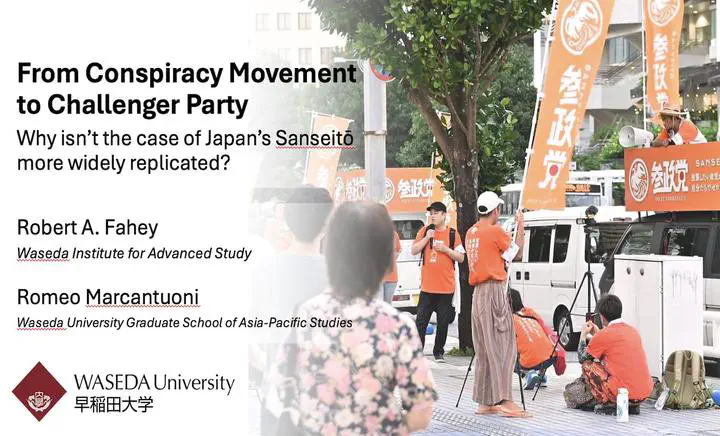From conspiracy theory movement to challenger party: why the case of Sanseito is not more widely replicated

Abstract
The rise in salience of conspiracy theory beliefs has created a new potential space for political entrepreneurs to emerge, but the costs of openly engaging in conspiracy theory rhetoric outweigh the potential rewards for most parties, which instead use ``dog whistle’’ strategies to maintain deniability regarding their views. We present the case of Sanseitō, a fringe Japanese political party founded during the COVID-19 pandemic which won a seat in the National Diet in 2022. Initially coming to prominence as an anti-vaccine party, it now promotes a conspiracist, anti-globalist worldview—but through the creation of an alternative media ecosystem and a highly developed membership system, it has been very successful in fundraising and attracting volunteer support. In this article we examine the party’s strategy and the contextual factors which permit it to openly embrace conspiracy theories in a way that sets it apart from similar parties overseas. The article contributes to research on niche parties and digital parties by presenting an example of structural and programmatic innovation that is specific to the post-pandemic political order.